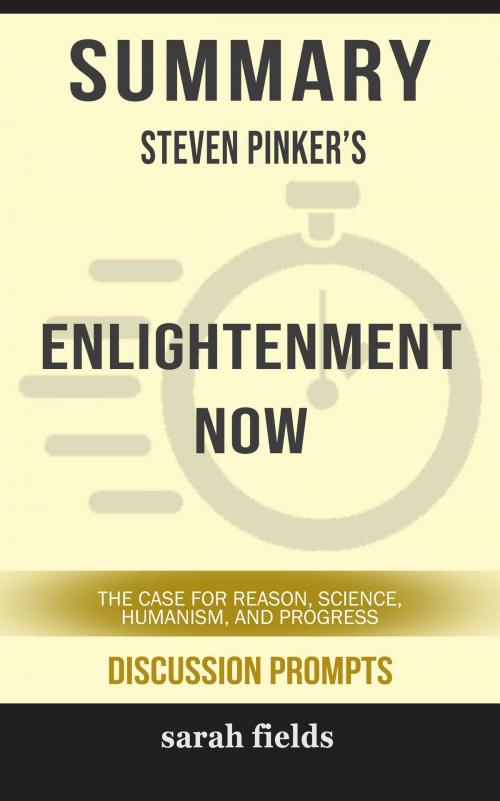Summary: Steven Pinker's Enlightenment Now
The Case for Reason, Science, Humanism, and Progress
Nonfiction, Reference & Language, Study Aids, Book Notes| Author: | Sarah Fields | ISBN: | 6610000148783 |
| Publisher: | HSP | Publication: | February 7, 2019 |
| Imprint: | HSP | Language: | English |
| Author: | Sarah Fields |
| ISBN: | 6610000148783 |
| Publisher: | HSP |
| Publication: | February 7, 2019 |
| Imprint: | HSP |
| Language: | English |
A public intellectual, author and cognitive scientist Steven Pinker writes an elegant assessment of the human race's condition during the third millennium in his book Enlightenment Now: The Case for Reason, Science, Humanism, and Progress. In this book, Pinker urges his readers to step back and look away from the gory news headlines that we see every day and the prophecies of doom that come with them. According to Pinker, this plays a big role in how we form our psychological biases. What he advises instead is to follow the data. In presenting the seventy-five jaw-dropping graphs, Steven Pinker showed that health, life, safety, prosperity, knowledge, peace, and happiness are actually on the rise. It's not only evident in the West, but also worldwide. Pinker notes that this progress is not a direct result of some cosmic force but it is actually a gift of the Enlightenment. He defines it as the conviction that science and reason actually enhance the flourishing of the human race. Enlightenment Now defends the case for science, reason, and humanism. These are the ideals that Pinker says we need to confront the problems we face and move forward in our progress.
In this comprehensive look into Enlightenment Now: The Case for Reason, Science, Humanism, and Progress by Steven Pinker, you'll gain insight with this essential resource as a guide to aid your discussions. Be prepared to lead with the following:
Discussion aid which includes a wealth of prompts and information
Overall plot synopsis and author biography
Thought-provoking discussion questions for a deeper examination
Creative exercises to foster alternate “if this was you” discussions
And more!
Disclaimer: This is a companion guide based on the work Enlightenment Now: The Case for Reason, Science, Humanism, and Progress by Steven Pinker and is not affiliated to the original work or author in any way. It does not contain any text of the original work. If you haven’t purchased the original work, we encourage you to do so first.
A public intellectual, author and cognitive scientist Steven Pinker writes an elegant assessment of the human race's condition during the third millennium in his book Enlightenment Now: The Case for Reason, Science, Humanism, and Progress. In this book, Pinker urges his readers to step back and look away from the gory news headlines that we see every day and the prophecies of doom that come with them. According to Pinker, this plays a big role in how we form our psychological biases. What he advises instead is to follow the data. In presenting the seventy-five jaw-dropping graphs, Steven Pinker showed that health, life, safety, prosperity, knowledge, peace, and happiness are actually on the rise. It's not only evident in the West, but also worldwide. Pinker notes that this progress is not a direct result of some cosmic force but it is actually a gift of the Enlightenment. He defines it as the conviction that science and reason actually enhance the flourishing of the human race. Enlightenment Now defends the case for science, reason, and humanism. These are the ideals that Pinker says we need to confront the problems we face and move forward in our progress.
In this comprehensive look into Enlightenment Now: The Case for Reason, Science, Humanism, and Progress by Steven Pinker, you'll gain insight with this essential resource as a guide to aid your discussions. Be prepared to lead with the following:
Discussion aid which includes a wealth of prompts and information
Overall plot synopsis and author biography
Thought-provoking discussion questions for a deeper examination
Creative exercises to foster alternate “if this was you” discussions
And more!
Disclaimer: This is a companion guide based on the work Enlightenment Now: The Case for Reason, Science, Humanism, and Progress by Steven Pinker and is not affiliated to the original work or author in any way. It does not contain any text of the original work. If you haven’t purchased the original work, we encourage you to do so first.















